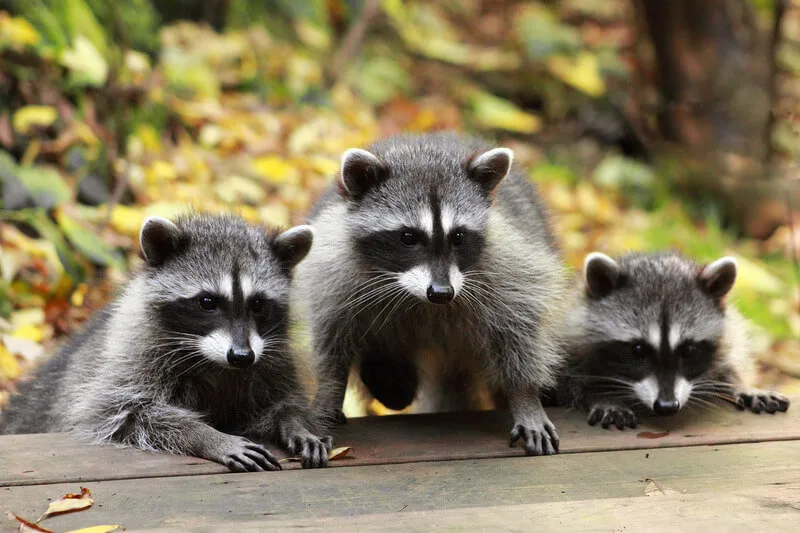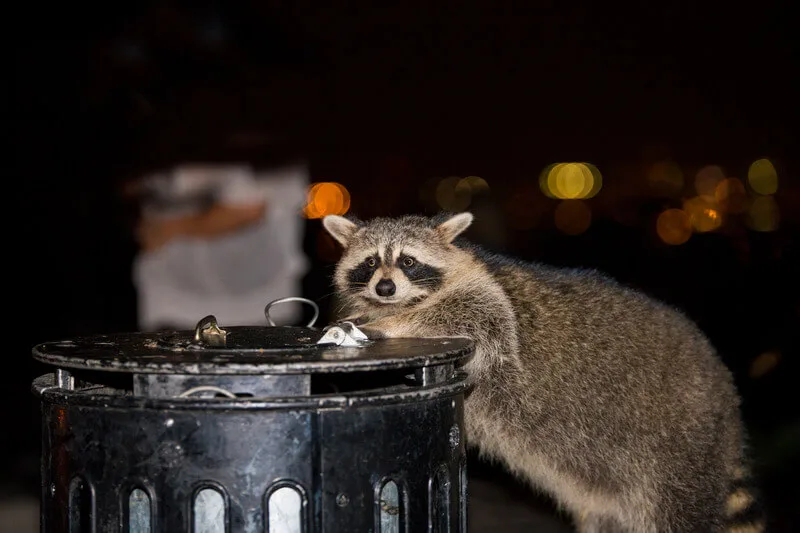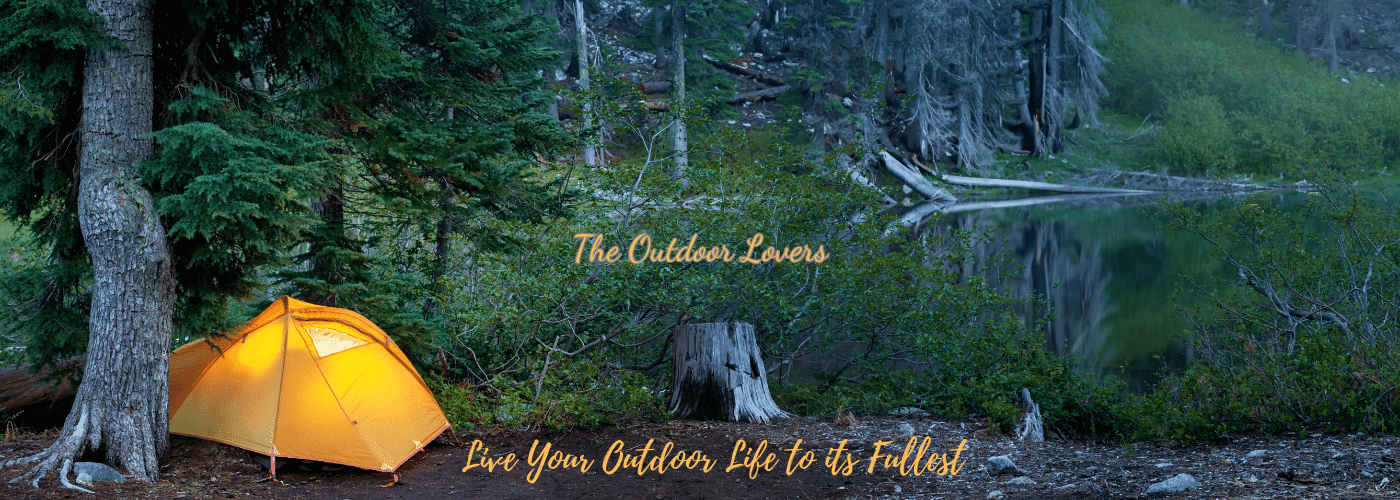Camping is always a great experience, but there are some things that can go wrong and ruin the experience for everyone involved. One of those things is having unwanted visitors at your campsite, such as the dreaded raccoon.
These little animals can cause quite the raucous at night, and quite a mess to clean up the next morning if they show up at your campsite. So, today’s article is going to be discussing some ways that you can keep these little creatures at bay and enjoy your camping trip to the fullest. So, What will keep raccoons away when camping?
Let’s Talk About Raccoons First:
Raccoon (Procyon lotor)

Raccoons are small to medium-sized mammals native to North America. Raccoons have a distinct appearance with a dense, grayish fur coat, a black “mask” around their eyes, and a ringed tail. They have agile bodies, sharp claws, and dexterous front paws, which allow them to manipulate objects.
They are highly adaptable and can be found in a variety of habitats, including forests, urban areas, and wetlands. They are known for their ability to thrive in human-populated environments.
Raccoons are nocturnal animals, meaning they are primarily active during the night. They are omnivorous, feeding on a wide range of foods including fruits, nuts, insects, small animals, eggs, and even garbage. Their diet can vary depending on the availability of food in their environment.
They are regarded as highly intelligent animals. They possess problem-solving skills and are known for their ability to open containers, manipulate objects, and learn from their experiences. This adaptability contributes to their success in urban areas.
It’s important to note that raccoons are wild animals and should be treated as such. If you encounter a raccoon, it’s best to observe them from a distance and avoid feeding or approaching them, as they can become aggressive if they feel threatened.
Raccoons can pose certain health dangers to humans. They are known carriers of various diseases, including rabies, which can be transmitted through bites or scratches. Raccoon droppings may contain a parasitic roundworm called Baylisascaris, which can be harmful if ingested. Additionally, raccoons can carry other bacterial and viral pathogens, such as leptospirosis and raccoon roundworm. It is important to avoid direct contact with raccoons and their waste to minimize the risk of disease transmission.

So, What Will Keep Raccoons Away?
The best and most reliable way to make sure no raccoons ever come around your campsite is to take away the one thing that they want, food. Food is the reason why raccoons will typically be drawn to an area, so the best way to make sure they aren’t, is to eliminate it.
Make sure that there is no food lying around the area before you go to bed at night, and that everything has been cleaned up properly. This means not only that the campsite is cleared out of all food and drinks, but that the trash has been thrown away at a secure location such as the campground dumpster or inside your RV if you own one.
Another thing to keep in mind is that even if your food is put away, it might still be attracting raccoons if the smell remains, or the containers are not sealed properly. Not all food storage is created equal so make sure you have the right kind, which brings us to our next section.
Where Can I Store Extra Food and Drinks?
Hard sided food storage containers are your best option for storing food, and you’ll want to keep any other scented items you may have at the campsite in those containers as well.
Or if you’re staying on a campground that includes access to bear boxes, which are typically made from steel, then this would be an even better place to put your food for the night.
And depending on where you’re staying and what the rules are, you could also consider keeping your food in your locked vehicle overnight.
But absolutely, never keep your food in the tent with you, because doing so will attract all sorts of different animals, some larger and more dangerous that raccoons, directly into the tent where you’re sleeping.
What Else Can Be Done to Keep Raccoons at Bay, If Putting the Food Away Fails?
If you’re not feeling confident that storing your food will be enough of a discouragement for raccoons, then you could make your own deterrent for a little extra security while you sleep at your campsite.
Spices such as black pepper, chili pepper, and cayenne can irritate raccoons, so they will mostly get away from the area as soon as they smell the odor. Fabric softeners are also something you could use in areas where you don’t want raccoons to be, as they don’t like this smell either.
But keep in mind that strange smells could also do the opposite of what you want, and attract raccoons, and other animals as well, to your campsite in order to investigate. To avoid this problem, many people suggest that you keep your spices in the containers with your food as an added security in case raccoons would want to get inside them.
What Can I Do If Raccoons Still Show Up at the Campsite?

Despite your best efforts, the raccoons might still make an appearance at some point during your hiking trip, but if they do, there’s no need to worry. I am going to share some tips for scaring away these unwanted visitors next…
The number one thing to do in this situation is to be as loud as possible! But although loud noises such as yelling, clapping, and banging nearby objects might frighten them, you can make some more strategic sounds as well.
Try to mimic sounds that the raccoon’s predators might make, examples would be to mimic a coyote or try and growl like a mountain lion if you think you can pull it off.
If loud noises don’t scare them off, then you could try to shine a flashlight at them, and the brightness will likely make them run back into the woods.
But if all else fails, then you could spray them with some pepper spray if you have it, and this might not scare them off but probably ensure they won’t return any time soon.
What Is One Thing I Should Never Do If I Don’t Want Raccoons Sniffing Around?
We’ve covered all of the things that you should do in order to keep raccoons away, but there is one thing that you should never do even if on the surface it might even seem like a good idea.
One way that campers often think that it is a good idea to get rid of excess food and other trash that accumulates on their campsite is to burn it, but that is actually the last thing that you should be doing.
Firstly, doing so will not only annoy other campers, be bad for the environment, and in the worst case cause a wildfire but secondly it will also attract raccoons and other animals to the campsite when they smell the burning food.
Additional Resources
If you are looking for more tutorials, walkthroughs and troubleshooting about camping and enjoying the outdoors, here are some additional posts to check out:
To conclude,
Hopefully, this article has taught you what you need to know about keeping raccoons out of your campsite. As long as you store your food properly, clean up after yourself, and do everything that was outlined in this article, you will be able to keep the raccoons and other animals in the woods and away from your camping site. Be Safe and Happy Camping.!

